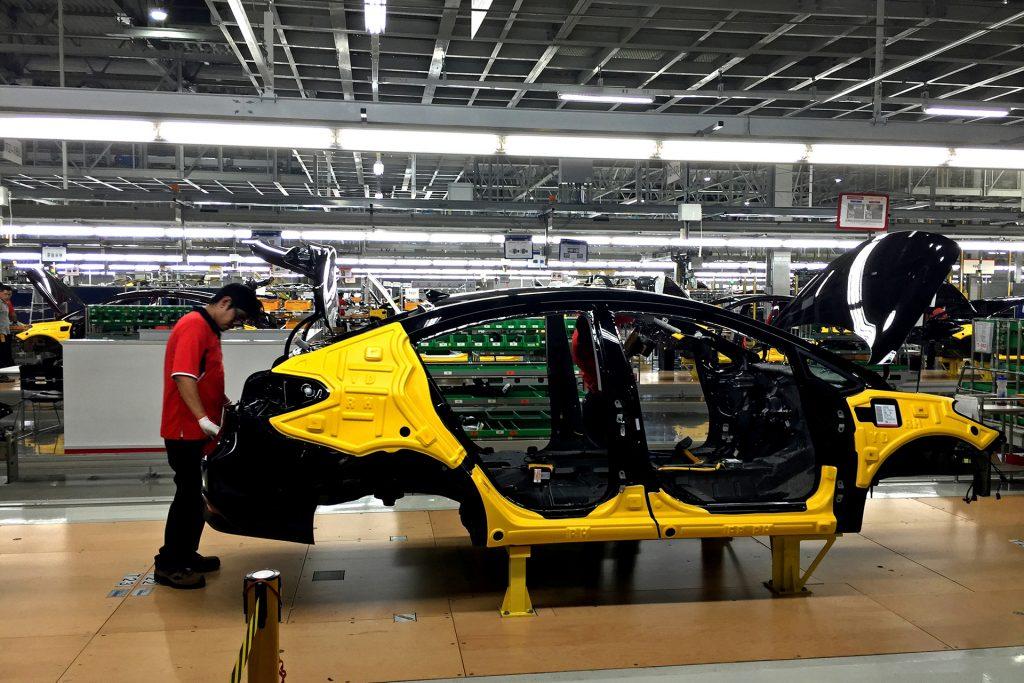When it comes to hard-line stances, the current administration has plenty of them, especially in terms of immigration and renegotiating NAFTA to “put America first.” If President Trump wants to do something about illegal immigration, he should tackle a source of the problem, such as NAFTA, instead of wasting money on a wall. The problems in Mexico include drug trafficking, poor working conditions, unemployment, and poverty. All these issues drive migrants to the border. What does NAFTA have to do with this, and how can renegotiating help?
NAFTA is trade agreement among the United States, Mexico, and Canada. This agreement lifts tariffs on goods traded and encourages companies to do business across borders. It was meant to benefit all countries, but that hasn’t happened. Mexico received jobs in the automotive industry and increased exports, but that was at the cost of tons of subsidized U.S. corn and other foods flooding the market.
RELATED: Sticky road for NAFTA redo
NPR has reported, “Seventy-five thousand Iowa farmers grew twice as much corn as 3 million Mexican farmers at half the cost. U.S. corn flooded Mexico. An estimated 2 million Mexican farm workers in general left the countryside for big cities.”
This caused dependency on imported food by wiping out small farmers’ ability to compete and forcing them to leave to find other work.
Jobs brought by companies looking for cheaper labor in Mexico are not a sustainable options, either. The companies that move to Mexico are enticed by lax regulations on working conditions and environmental standards, which does nothing for the common workers. They can’t make enough to live and the land they could farm is taken away. NAFTA has also increased the drug trade by providing more opportunities in which drugs can cross the border.
According to the Council on Hemispheric Affairs, “NAFTA has unintentionally, or through the negligence of those championing the free-trade agreement, benefited the [drug-trafficking organizations]. Not only has NAFTA exponentially increased border traffic, allowing the probability that drugs passing across the border to grow, but it has made the smuggling of weapons back into Mexico easier as well.”
RELATED: Grassley, Ernst Iowa trade to be protected in NAFTA renegotiation
The large levels of inequality allow drug-trafficking organizations to manipulate and recruit people to work in their supply chain in hopes of making a living. This makes an already bad problem worse. These numerous issues leave many Mexicans stuck in poverty and danger, forcing them north. In fact, right after NAFTA was implemented, migration doubled in 1994. Overall, Mexico has only seen minimal growth and more problems — that is not enough to justify NAFTA the way it currently is.
According to the Council on Foreign Relations, “Between 1993 and 2013, Mexico’s economy grew at an average rate of just 1.3 percent a year during a period when Latin America was undergoing a major expansion. Poverty remains at the same levels as in 1994.”
RELATED: Editorial: NAFTA helps both U.S., Iowa
On the other hand, Trump believes that NAFTA needs to be renegotiated solely because it has been pulling U.S. jobs across the border, failing to consider repercussions on the other side. Viewing this renegotiation purely through “America first” glasses will cause an uptick (as historically proven) in the president’s other least favorite topic: illegal immigration. Somewhere along the line a compromise needs to be made.
I think it’s necessary to view this renegotiation as an opportunity to help alleviate migration issues to some extent, as an alternative to wasting money on a wall. Of course, not every problem can be blamed on NAFTA, but there are enough clear connections to force a renegotiation that has Mexican interests in mind. Alleviating even a little bit of the problems brought on by NAFTA will help the Mexican people and our own illegal-immigration issue.











